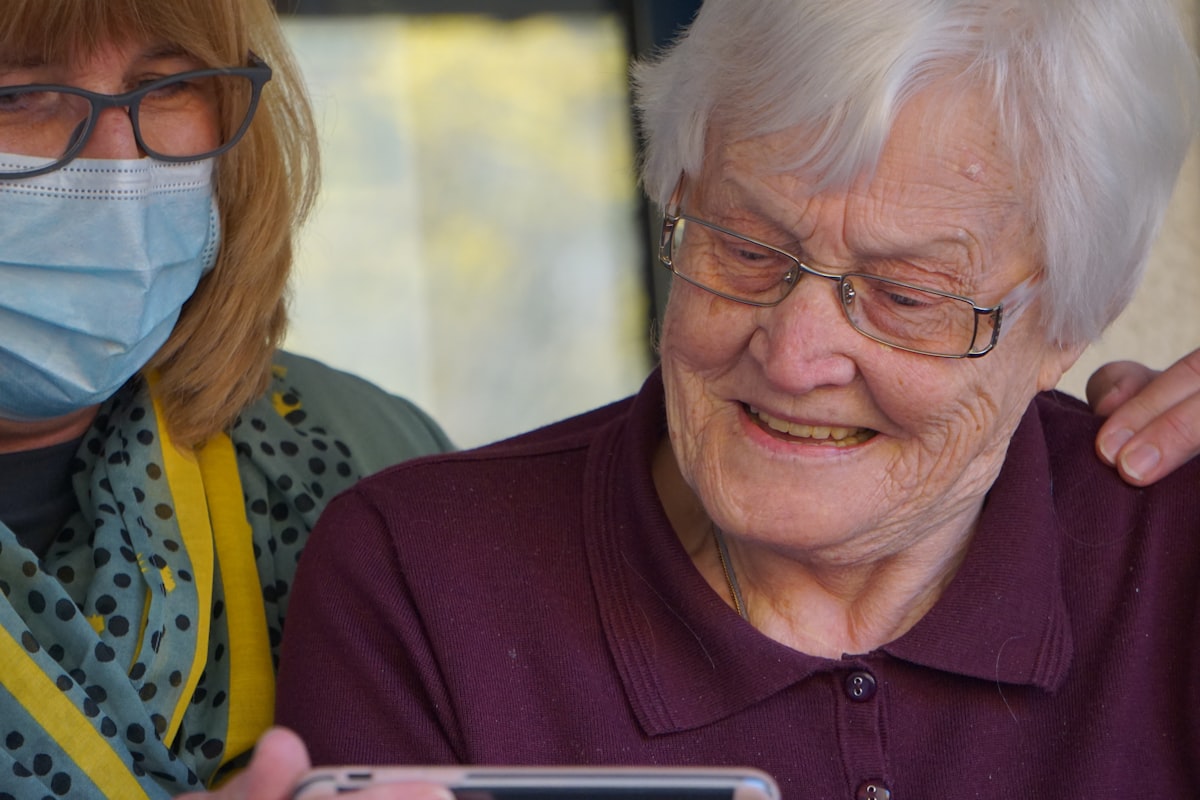Eldercare and Caregivers: Learn Stress Management
Caring for aging loved ones can be rewarding but also stressful. Learn about the emotional habits that contribute to caregiver stress, how it affects eldercare, and how to recognize and deal with it. Discover tips for balancing caregiving with self-care.

Caregiver stress and eldercare go hand in hand together.
Does caring too much contribute to an increase your level of stress? Caregivers often choose to provide the care for their aging loved one’s themselves. Providing day to day care can lead to minute to minute care at a moments notice. Because care giving is intermittent and unpredictable it can be very stressful.
Caring for another gives one a sense of well being and enhances one self esteem. Caring in most dictionaries is defined as a burdened state of mind, a state of worry, a state of concern. Caring for another is an emotional state, in which we tend to look after another.
So how does something that is meant to make caregivers feel better about themselves… lead to a path of jeopardizing their own health and other relationships?
Caregivers are so busy caring. They are focused on their aging loved one. They often ignore, harmful and dangerous warning signs. that contribute to what are commonly known as “caregiver stress”.
More on Eldercare and Caregivers
Studies show that more than fifty percent of all caregivers suffer:
- Depression
- Anxiety
- Sadness
- Anger
- Resentment and guilt
In other words, this is caregiver stress.
Caregiver stress and eldercare can result in making: Poor judgments and lack of creativity. This impedes trying to determine solutions. Lack of energy leads to inaction.
So how does caring too much contribute to this cycle of caregiver stress? Eldercare and caregiver stress there is a lot of responsibility and emotional attachment. Many care givers have a tendency to have poor emotional habits.
Caregivers have a tendency to:
- Show concern
- Give their loved ones attention
- Provide sympathy
- Support to the extent of being harmful to their own health
It is important to recognize the warning signs of caregiver stress and deal with it immediately:
• Sadness, moodiness, anger
• Social withdrawal from friends and social activities
• Feeling of fatigue, difficulty sleeping (too much or too little)
• Irritability
• Frequent headaches, colds and stomach feeling upset
• Feeling of hopelessness, dread and anxiety and depression
These emotional habits of:
- Concern
- Worry
- Anxiety
- Obsessive thinking are common in care givers
As the caregiver continues to have an unbalanced life… the results are anger, resentment and blaming others for things.
Here are a few examples of poor emotional habits
The daughter that feels she has to physically be with her parent’s everyday. This, to show them that she cares for them, even though she lives across town.
The brother and sister that argue constantly. The both feel over each one knows what is best in the future care of their parents.
A daughter equates love, caring and attention by constantly… worrying over her parent’s situation.
The caregiver that feels she has to return every call from her aging loved one immediately. Even at work; for fear that he/ she will be viewed as uncaring and unconcerned.
The results of these situations:
The daughter begins to feel resentful and angry towards her parents. As well as other family members for their need for attention and time she gives. The daughter puts a wedge between her and her other family members. The daughters outside relationships suffer. Her need to see her parent’s everyday overrides her outside relationships.
The family arguments lead to a stalemate. No decisions are made. The parents feel as if they have become a burden to the family.
The daughter’s aging parents feel concerned. They worry they are causing their daughter anguish and worry. They hide and avoid discussing important topics from her to protect her. This leads to the daughter managing her parent’s care in a crisis mode. As she is not made aware of situations when they experience declining health.
The caregiver becomes… resentful, angry and frustrated that calls to them are trivial at times. This resentment leads to making bad judgments. Taking a reactive approach to solve the real important challenges… when they present themselves.
Caring too much does not cause stress. It is how we manage to care that is the issue.
Worry, anxiety, anguish, sleeplessness does nothing to solve any problem. When we develop better emotional habits that is when our life will come into balance. Life is in balance when we deal with stress and are able to function at full capacity under pressure.
The first step to changing your emotional habits is to become aware of your feelings . And acknowledge them.
Here are a few questions to help you evaluate:
- Are there areas of care that give you energy and joy and reduce your stress? Take time to write them down and why they have this affect on you.

What areas of care giving causes you stress and drains your energy?
- Do you have a strong identity or a strong feeling towards a particular outcome in some situations?
- What are your common emotional habits that best describe your sense of caring? Is it your expectations, what you perceive are others expectations, sentiment, sympathy, attachment
Take a personal inventory. Evaluate your feelings. It is the first step towards balance and improved health.
Learning and implementing stress reduction techniques can shift you. From an emotionally drained and negative state… back to a balanced positive emotional state.
Stress reduction techniques will also give you a broader perspective on decision making.
A simple stress reduction technique to get your life back into balance:
- Identify your common emotional habits. When you begin to experience that emotion(anger, resentment, guilt, self judgment)
- Close your eyes and acknowledge that feeling
- Select a positive thought or feeling to replace what you are feeling
- Now breathe, concentrate on your heart beat, as you breathe in, think of the positive feeling
- Concentrate on slowly breathing until you feel the new positive feeling
There are many challenges to eldercare and care giving. There are also many more rewards that have a positive effect on the entire family. Take care of yourself. Manage how you care. This can make this challenge rewarding and improve the quality of life for everyone. The importance of coping with caregiver stress can not be over emphasized.
Our Resources section can help you find the information and tools that you need. We have courses, videos, checklists, guidebooks, cheat sheets, how-to guides and more.
You can get started by clicking on the link below. We know that taking care of a loved one is hard work, but with our help you can get the support that you need.
Click here to go to Resources Section now!




